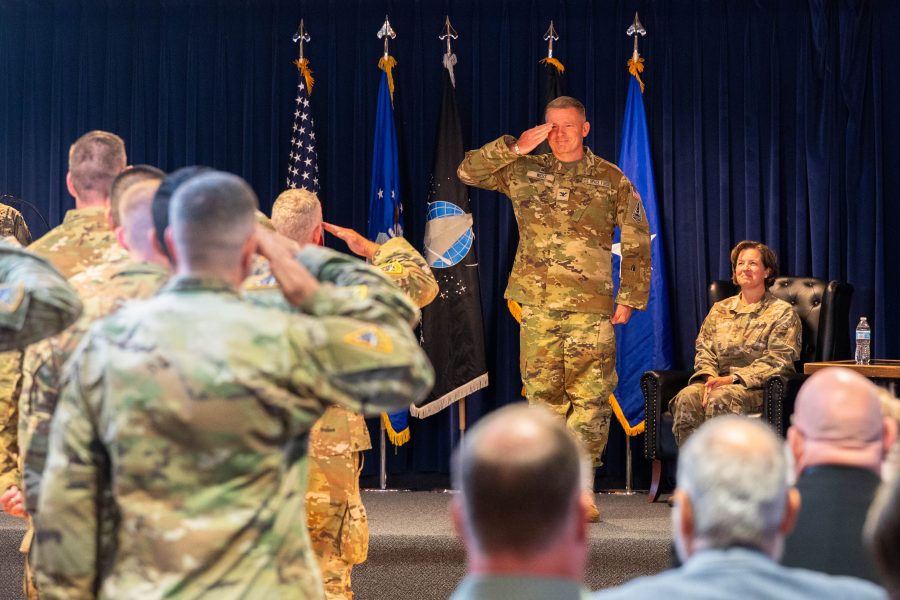The Space Force recently stood up a new kind of acquisition unit to oversee how the service rolls out new equipment for a slew of missions related to how the military gathers information in and communicates from orbit—and it has plans to double its number of such units in the next six weeks.
System Delta 85 opened for business in an Aug. 8 ceremony at Peterson Space Force Base, Colo. It is the latest unit under Space Systems Command that aims to get new hardware and software to operations floors, launch facilities, and orbit sooner by consolidating pieces of the acquisition process under one roof. It will be paired with mission deltas, the Space Operations Command units that handle daily operations, in the same areas for a smoother handoff from development to deployment.
The service had previously stood up four of the system deltas.
This newest unit will focus on “developing and fielding sensors, satellite control antennas, data systems and software capabilities to counter adversary actions and threats in and through the space domain,” the service said in an Aug. 18 release. Those tools will span space domain awareness; missile warning, tracking, and defense; command, control, and communications; battle management; and intelligence.
“Our systems are the foundation that makes all other systems work. Without battlespace awareness, we are blind. Without intelligence, we are lost,” Col. Jason West, the unit’s commander, said in the release.
The delta will also work closely with the Space Force’s program executive officer in charge of the battle management, command, control, and communications, and intelligence portfolio. Its work will likely be a critical piece of the Pentagon’s effort to design the sweeping missile defense shield known as Golden Dome, and of the military’s vision for a vast connected network of sensors and shooters.
By Oct. 7, the Space Force plans to open five additional system deltas, for a total of 10. The upcoming units will focus on:
- test and training
- satellite communications
- combat power
- position, navigation, and timing
- assured access to space.
The service said Guardians should expect “minimal” relocations as it continues to roll out new deltas. The changes are not expected to require more staff.
In July, Space Systems Command boss Lt. Gen. Philip Garrant noted teaming up mission and system deltas can also let Guardians solve problems at lower levels without getting top brass involved. He also helps reorganizing will help the Space Force weather the loss of institutional knowledge it has suffered as hundreds of civilian staffers have departed under the Trump administration’s efforts to shrink the federal workforce.
“When you have more work and fewer people, you’ve got to do things differently,” he said.





